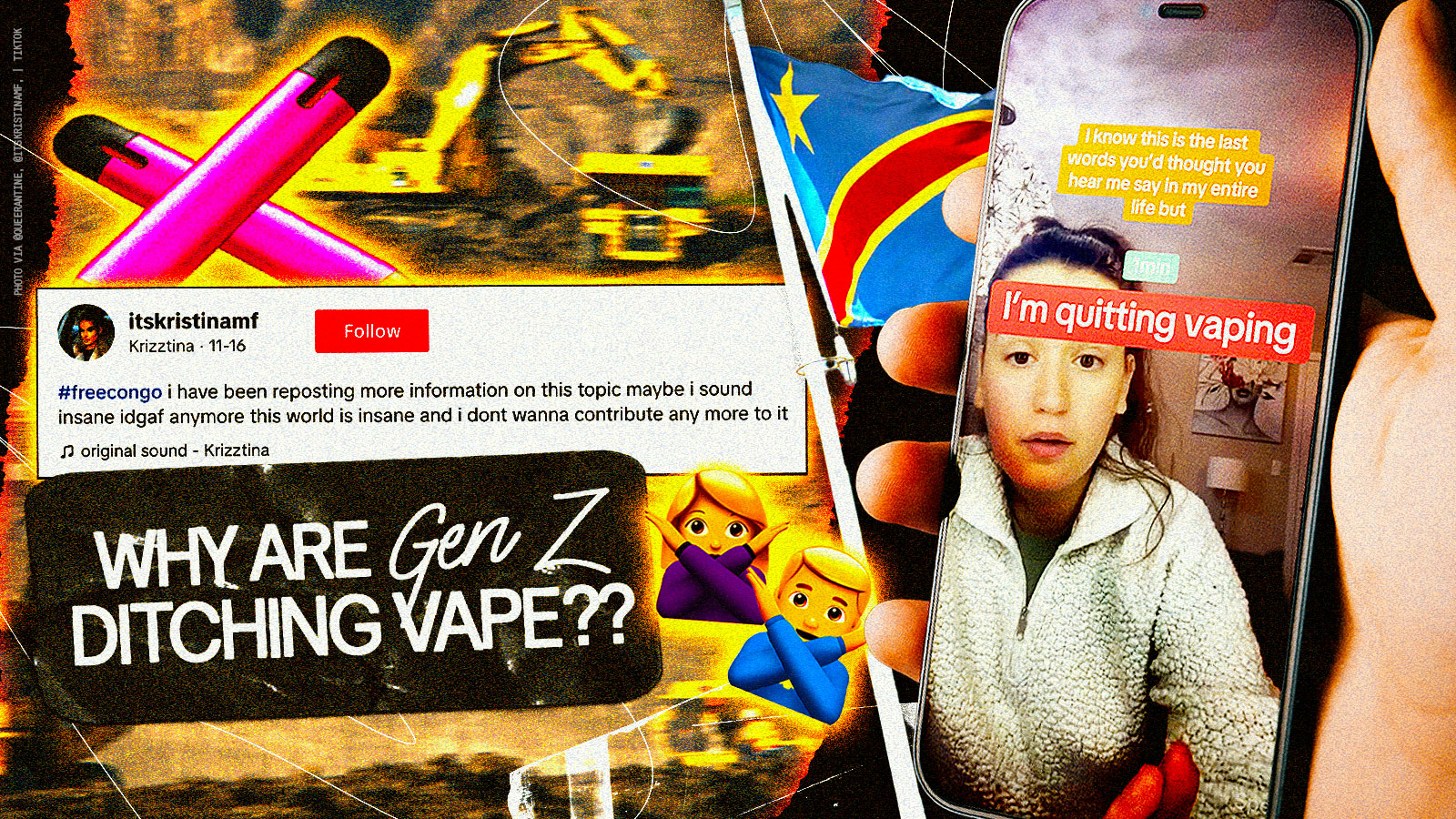Some Gen Zs are putting their words into action and dropping their vapes, but not for the reason you might think.
Related: With 2023 Coming To A Close, Here Are Small Steps to Building Better Habits
The TikTok generation, often associated with viral dances and trendsetting content, is now channeling its influence towards a cause—ditching vapes. But some Gen Zs ditching their vapes is not necessarily driven about unhealthy habits; rather, it’s driven by a growing awareness of the dire humanitarian situation stemming from the cobalt mines in the Democratic Republic of Congo.
While vaping has been marketed as a modern alternative to traditional smoking, recent revelations about the practices within the cobalt industry are prompting a wave of conscientious objection among some Gen Z. Here’s a closer look at why people are taking a stand.
One of the Main Materials for Vapes: Cobalt
@itskristinamf #freecongo ♬ original sound – Krizztina
Vaping has surged in popularity among Gen Zs, drawing them in for various reasons. However, the intricate process involved in crafting these devices remains unexplored. What’s alarming is the inclusion of cobalt, a crucial element in these vaping tools, sourced primarily from the Democratic Republic of Congo (DR Congo).
Cobalt’s significance lies in the creation of lithium-ion batteries, widely used in smartphones, electric cars, and various modern gadgets. But the path taken by cobalt, originating from mining sites in DR Congo to its incorporation into vape products, conceals a story of disturbing proportions—a tale marked by human rights violations and environmental issues, often overlooked in the larger narrative of vaping’s allure.
What’s Happening in Congo?
@brandongonezshow Internet users are throwing away their vapes after finding out how it's made! #congo #vaping #cobalt #protest #cancle ♬ original sound – The Brandon Gonez Show
The Democratic Republic of the Congo, home to a population exceeding 100 million, is presently entangled in what the United Nations has labeled as one of the ‘largest humanitarian crises in the world.’ Reports from groups like Amnesty International highlight multinational corporations extracting copper and cobalt, resulting in the forceful expulsion of entire communities.
Adding to this distressing scenario, thousands of children forgo education to mine cobalt for lithium-ion batteries. To make matters worse, families work in Congolese cobalt mines, resulting in tragic incidents where children lose parents in fatal accidents—all this to aid in the production of vapes. It’s a harrowing reality, a price paid in human suffering for the sake of meeting the demand for vaping products.
It’s Time to Quit, FR
@digital.olive It’s @Sèrge video and i love it #freecongo🇨🇩 ♬ original sound – olive 🫒☀️
Since last week, there’s been an emerging movement among Gen Z vapers showcasing heightened concern for humanitarian issues stemming from the cobalt mines in Congo. This movement has ignited a conversation that extends beyond personal health and delves deeper into social concerns. While we’re often perceived as indifferent to the imminent health risks or escalating environmental threats posed by vaping, we are demonstrating a profound commitment to addressing injustices. Now, content creators have taken charge on TikTok, advocating for ditching vaping as a means of expressing solidarity with the oppressed communities affected by the cobalt mining industry in Congo.
It’s crucial to emphasize that vapes aren’t the sole carriers of cobalt, but this growing movement symbolizes something larger. It’s a call for awareness about the often-neglected origins of materials used in everyday commodities. This movement marks the beginning of a significant conversation about responsible consumption, ethical sourcing, and the broader implications of our consumption habits.
Continue Reading: Some Things To Keep In Mind When We Raise Issues on Social Media





